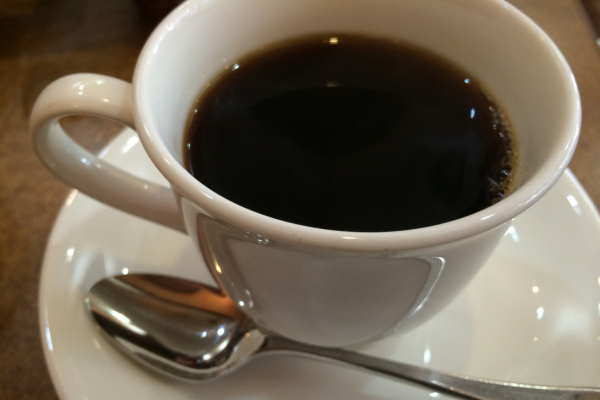Precision is one of the secrets behind consistently great coffee. While many people rely on measuring scoops or guesswork, serious home brewers know that a digital coffee scale can transform their brew quality. If you want to take control of your coffee flavor, balance, and strength, a scale is one of the smartest investments you can make.
In this guide, you’ll learn what coffee scales do, why they matter, and how to choose the best one for your setup.
What Is a Coffee Scale?
A coffee scale is a digital device used to measure the weight of coffee beans and water with high precision. Unlike kitchen scales, coffee scales often include a built-in timer and are calibrated for small, frequent measurements—ideal for brewing.
Most specialty coffee recipes are measured in grams, not scoops or tablespoons. That’s because different beans have different densities, and weight-based measurements give you accuracy and consistency.
Why You Need a Coffee Scale
1. Precision Brewing
Brewing the perfect cup requires precise ratios of coffee to water. Measuring by weight allows you to:
- Follow recipes accurately
- Adjust strength and flavor
- Avoid over- or under-extraction
For example, if your pour-over recipe calls for a 1:16 ratio (1g of coffee for every 16g of water), a scale ensures you hit that target perfectly.
2. Consistency
Guesswork leads to inconsistency. With a scale, you can replicate a great cup every time. It removes human error, especially in pour-over, AeroPress, or espresso brewing.
3. Better Flavor Control
Coffee scales help you understand how brewing variables affect your results. You can fine-tune your:
- Dose (amount of coffee)
- Yield (final amount of coffee in cup)
- Brew ratio (coffee:water)
This lets you troubleshoot issues like bitterness, sourness, or weak flavor more easily.
4. Better Value from Your Beans
By using precise doses, you avoid waste. If your beans are high quality or expensive, a scale ensures every gram contributes to a better cup.
Essential Features to Look For
Not all coffee scales are created equal. Here’s what to look for when choosing one:
Precision (Readability)
Look for a scale that measures in 0.1-gram increments. This is especially important for espresso, where small changes make a big difference.
Response Time
A fast response ensures you’re not over-pouring while waiting for the number to catch up. Quick feedback is essential for pour-over methods.
Built-in Timer
Many coffee scales include a built-in stopwatch. This allows you to:
- Time your bloom
- Track pour intervals
- Ensure consistent brew times
Timer + scale = full control over your extraction process.
Weight Capacity
Most brewers won’t need more than 2,000 grams (2 kg) of capacity. However:
- For espresso, a 500g scale is sufficient.
- For pour-over or French press, look for at least 2kg capacity.
Size and Platform
Make sure the platform fits your brewing gear:
- Espresso: Small, narrow platform that fits drip trays
- Pour-over: Wider platform to hold carafe and dripper
Anti-slip grips and water-resistant surfaces are also helpful.
Rechargeable Battery or USB Power
Rechargeable coffee scales are more convenient than battery-powered ones. Some models charge via USB-C, making them eco-friendly and cost-effective.
Popular Coffee Scales for Different Needs
Here are a few highly rated scales trusted by baristas and home brewers:
Entry-Level: Hario V60 Drip Scale
- Built-in timer
- Simple, reliable
- Slightly slower response time
- Best for pour-over beginners
Mid-Range: Timemore Black Mirror
- Sleek design, fast response
- USB rechargeable
- Precise to 0.1g
- Excellent for pour-over and AeroPress
Advanced: Acaia Pearl
- Professional-grade
- Bluetooth connectivity with app
- Ultra-fast response and precision
- Built-in rechargeable battery
- Expensive, but top-tier performance
Espresso-Specific: Acaia Lunar
- Fits perfectly on espresso drip trays
- Ultra-compact and waterproof
- Used in professional competitions
- Includes auto-tare and auto-timer functions
Do You Really Need One?
If you’re using pre-ground coffee in a drip machine, a scale may not seem necessary. But if you:
- Grind your own beans
- Use manual brewing methods
- Want to improve your coffee quality
Then yes—a coffee scale is a game-changer.
Even casual coffee lovers notice the difference after switching to weight-based brewing. It’s one of the cheapest and easiest upgrades you can make to elevate your daily coffee.
How to Use a Coffee Scale in Practice
A basic brewing routine using a scale looks like this:
- Place your brewer and mug on the scale.
- Tare (zero out) the scale.
- Add the coffee grounds to the desired dose.
- Tare again after adding water or mug.
- Begin timer and pour water while watching both weight and time.
This approach brings precision and awareness to your brewing, improving both technique and results.
Tips for Getting the Most Out of Your Scale
- Always place your scale on a flat, stable surface
- Keep the scale clean and dry to avoid sensor issues
- Tare the scale after every major step (coffee dose, water add, etc.)
- Use with consistent recipes to experiment with variables
- Consider logging your recipes and outcomes for learning
Final Thoughts: The Power of Precision
A digital coffee scale may not be as flashy as a new espresso machine or grinder, but it’s one of the most essential tools for brewing better coffee. With precision and consistency, you can extract more flavor, avoid waste, and enjoy better results from your beans.
If you take your coffee seriously—or simply want your morning cup to be reliably excellent—a scale isn’t optional. It’s a necessity.

